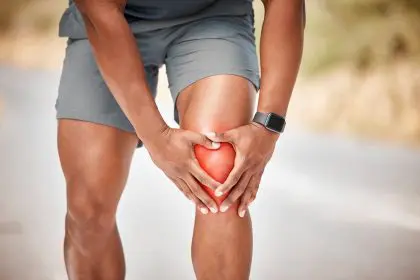Undergoing major surgery can be a daunting experience, and managing postoperative pain effectively is crucial for a smooth recovery. Opiates are commonly prescribed to alleviate severe pain following surgery, but their use carries a significant risk of addiction. Opiate addiction can have devastating consequences, affecting not only the individual’s health but also their relationships and overall quality of life. Understanding how to avoid opiate addiction after major surgery is essential for ensuring a safe and successful recovery. In this article, we will explore various strategies and alternatives to opiates that can help manage pain effectively without leading to addiction.
Understanding the risks of opiate use
Opiates, including medications like morphine, oxycodone, and hydrocodone, are powerful pain relievers that act on the central nervous system. While they are highly effective at reducing pain, they also have a high potential for abuse and addiction. The euphoric feeling they produce can lead to misuse, even when initially taken as prescribed. Over time, individuals may develop a tolerance, requiring higher doses to achieve the same effect, which further increases the risk of addiction.
The role of opiates in pain management
Opiates are often prescribed after major surgeries because they provide quick and effective pain relief. For many patients, opiates can be an essential component of their initial pain management plan. However, their use should be carefully monitored and limited to the shortest duration possible to minimize the risk of addiction. Understanding the role of opiates in pain management is the first step toward making informed decisions about their use.
Strategies to avoid opiate addiction
1. Open communication with your healthcare provider
Effective communication with your healthcare provider is crucial in managing pain after surgery. Discuss your concerns about opiate use and ask about alternative pain management options. Your provider can tailor a pain management plan that addresses your needs while minimizing the risk of addiction. Be honest about your pain levels and any history of substance abuse, as this information can help guide your treatment plan.
2. Utilizing non-opiate pain relievers
Non-opiate pain relievers, such as acetaminophen and nonsteroidal anti-inflammatory drugs (NSAIDs), can be effective in managing mild to moderate pain. These medications can be used alone or in combination with lower doses of opiates to reduce the overall need for opiates. Your healthcare provider can recommend the appropriate non-opiate pain relievers based on your specific condition and medical history.
3. Exploring alternative pain management techniques
Several alternative pain management techniques can complement or even replace the need for opiates. These techniques include:
- Physical therapy: Engaging in physical therapy can help improve mobility and reduce pain through targeted exercises and stretches. Physical therapists can also teach techniques to manage pain without medication.
- Acupuncture: This traditional Chinese medicine practice involves inserting thin needles into specific points on the body to alleviate pain. Some studies suggest that acupuncture can effectively reduce pain and may be used as part of a comprehensive pain management plan.
- Massage therapy: Massage therapy can help relax muscles, improve circulation, and reduce pain and inflammation. It can be particularly beneficial for postoperative pain relief.
- Cognitive behavioral therapy (CBT): CBT is a type of psychotherapy that helps patients develop coping strategies for managing pain. It can be effective in addressing the emotional and psychological aspects of pain, reducing the need for medication.
4. Gradual reduction of opiate use
If opiates are necessary for initial pain management, it is important to follow a plan for gradually reducing their use. Tapering off opiates under the guidance of your healthcare provider can help prevent withdrawal symptoms and reduce the risk of addiction. Your provider can create a tapering schedule that gradually decreases the dosage over time, allowing your body to adjust to lower medication levels.
Lifestyle changes to support recovery
1. Maintaining a healthy diet
A balanced diet rich in nutrients can support your body’s healing process and help manage pain. Foods high in antioxidants, anti-inflammatory compounds, and essential vitamins and minerals can promote recovery and reduce inflammation. Incorporate fruits, vegetables, lean proteins, and whole grains into your diet to support overall health.
2. Staying hydrated
Proper hydration is essential for recovery after surgery. Drinking plenty of water can help flush toxins, reduce inflammation, and promote healing. Aim to drink at least eight glasses of water daily, and more if you are engaging in physical activity or if your healthcare provider recommends it.
3. Regular exercise
Regular exercise can improve circulation, reduce pain, and promote overall well-being. Low-impact activities such as walking, swimming, and yoga can be beneficial during the recovery process. Consult with your healthcare provider before starting any exercise program to ensure it is safe for your condition.
The importance of emotional support
1. Building a support network
Having a strong support network can significantly impact your recovery and help you avoid the pitfalls of opiate addiction. Surround yourself with family, friends, and support groups who can offer encouragement and understanding. Sharing your experiences and challenges with others who have gone through similar situations can provide valuable insights and emotional support.
2. Seeking professional help
If you are struggling with pain management or have concerns about addiction, seeking professional help from a counselor or therapist can be beneficial. Mental health professionals can provide coping strategies, emotional support, and guidance on managing pain and avoiding addiction. Do not hesitate to reach out for help if you feel overwhelmed or if your pain management plan is not working as expected.
Conclusion
Avoiding opiate addiction after major surgery requires a proactive approach to pain management and a commitment to exploring alternative options. By communicating openly with your healthcare provider, utilizing non-opiate pain relievers, and incorporating alternative pain management techniques, you can effectively manage your pain without the risk of addiction. Additionally, making healthy lifestyle changes and seeking emotional support can further enhance your recovery. Remember, your well-being and long-term health are paramount, and taking steps to avoid opiate addiction is an essential part of ensuring a successful and safe recovery.
This story was created using AI technology.
















